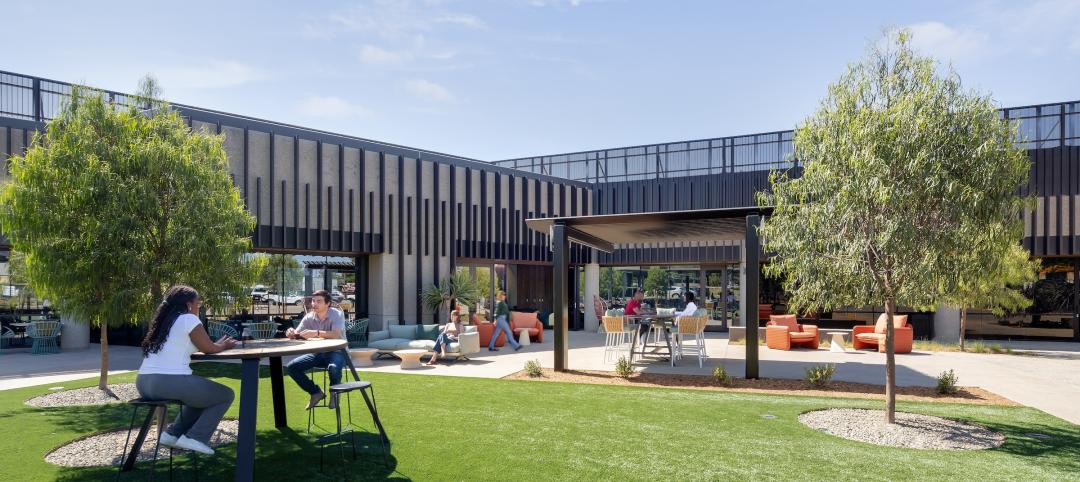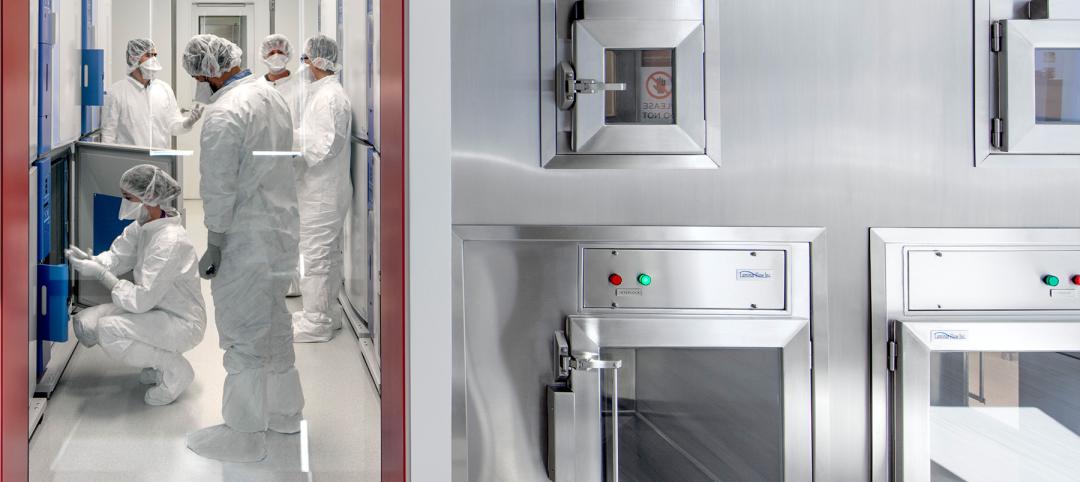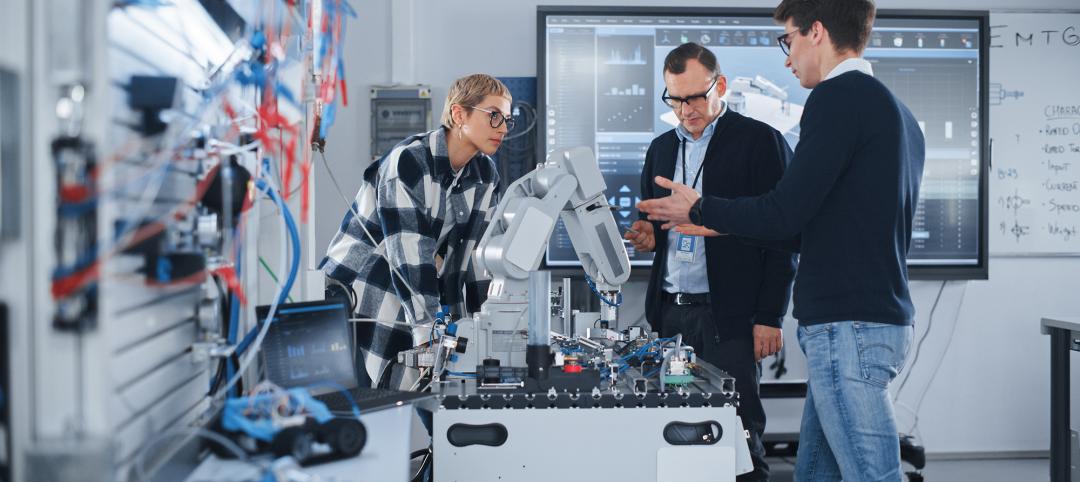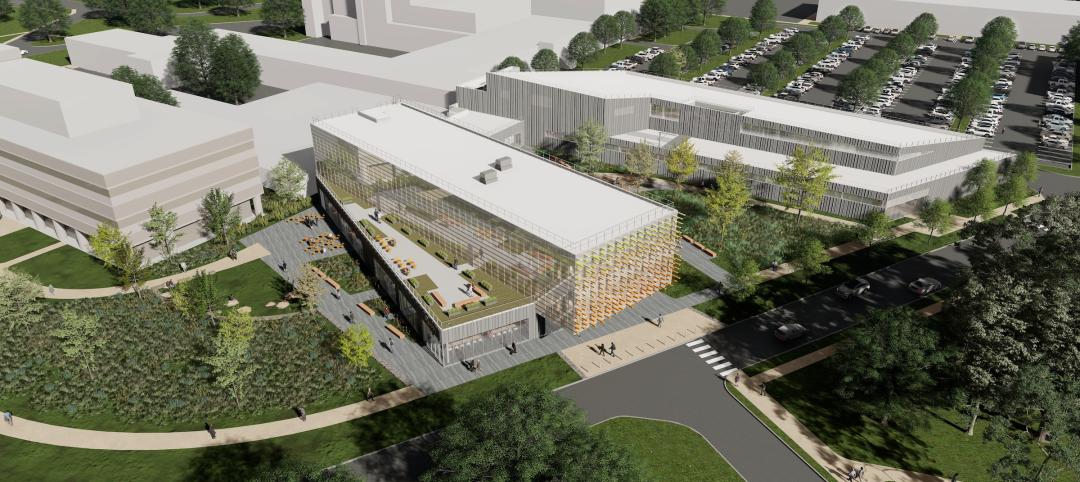3XN has unveiled the new joint home of Universal Robots (UR) and Mobile Industrial Robots (MiR) in Odense, Denmark. The 215,000-sf project will enhance collaboration and employee well-being while offering highly specialized environments for robot research and development.
The new facility will group most of UR and MiR’s activities, which are currently spread across five different addresses in Odense, in one location, creating the world’s largest hub for cobots (collaborative robots that work and interact with humans).

Dubbed Cobot Hub, the facility comprises flexible modules tailored to the robotics companies’ specialized needs. "We have worked closely with the users of the building since the beginning of the process, and we have conducted many interviews to outline what the new building needs to deliver," said Audun Opdal, Architect and Senior Partner, 3XN, in a release. "A lot of different elements had to come together. The new building will house two independent companies that need everything from traditional office space to workshops, laboratories, and creative robot ‘playrooms,’ where the robots of the future are developed.”

The building’s modular approach provides a flexible framework that allows the building to be scaled up or down according to future needs. This means significant parts of the building’s structure and materials can be reshaped and reused.
Cobot Hub will include a green roof, open office landscapes, common areas, and amenity spaces where employees can meet informally across the two organizations and exchange knowledge and innovations. Atriums open the building up and create visibility and transparency, encouraging social interaction. A shared courtyard forms the heart of Cobot Hub and will become the center of social life on the campus.
The project is slated for completion in 2023.


Related Stories
Laboratories | Oct 23, 2024
From sterile to stimulating: The rise of community-centric life sciences campuses
To distinguish their life sciences campuses, developers are partnering with architectural and design firms to reimagine life sciences facilities as vibrant, welcoming destinations. By emphasizing four key elements—wellness, collaboration, biophilic design, and community integration—they are setting their properties apart.
Laboratories | Oct 2, 2024
Trends in scientific research environments: Q&A with Flad's Matt McCord
As part of an ongoing series, Matt McCord, AIA, NCARB, LEED AP BD+C, Associate Principal with Flad Architects, discusses the future of the scientific workplace.
Laboratories | Sep 27, 2024
Traditional lab design doesn't address neurodiverse needs, study finds
A study conducted by ARC, HOK, and the University of the West of Scotland, has revealed that half (48.1%) of all survey respondents who work in laboratory settings identify as neurodivergent.
Laboratories | Sep 26, 2024
BSL conversions: A cost-efficient method to support high-containment research
Some institutions are creating flexible lab spaces that can operate at a BSL-2 and modulate up to a BSL-3 when the need arises. Here are key aspects to consider when accommodating a rapid modulation between BSL-2 and BSL-3 space.
Higher Education | Sep 18, 2024
Modernizing dental schools: The intersection of design and education
Page's John Smith and Jennifer Amster share the how firm's approach to dental education facilities builds on the success of evidence-based design techniques pioneered in the healthcare built environment.
Great Solutions | Jul 23, 2024
41 Great Solutions for architects, engineers, and contractors
AI ChatBots, ambient computing, floating MRIs, low-carbon cement, sunshine on demand, next-generation top-down construction. These and 35 other innovations make up our 2024 Great Solutions Report, which highlights fresh ideas and innovations from leading architecture, engineering, and construction firms.
Laboratories | Jul 3, 2024
New science, old buildings: Renovating for efficiency, flexibility, and connection
What does the research space of the future look like? And can it be housed in older buildings—or does it require new construction?
Mass Timber | Jun 26, 2024
Oregon State University builds a first-of-its-kind mass timber research lab
In Corvallis, Oreg., the Jen-Hsun Huang and Lori Mills Huang Collaborative Innovation Complex at Oregon State University aims to achieve a distinction among the world’s experimental research labs: It will be the first all-mass-timber lab meeting rigorous vibration criteria (2000 micro-inches per second, or MIPS).
Healthcare Facilities | Jun 18, 2024
A healthcare simulation technology consultant can save time, money, and headaches
As the demand for skilled healthcare professionals continues to rise, healthcare simulation is playing an increasingly vital role in the skill development, compliance, and continuing education of the clinical workforce.
Laboratories | May 24, 2024
The Department of Energy breaks ground on the Princeton Plasma Innovation Center
In Princeton, N.J., the U.S. Department of Energy’s Princeton Plasma Physics Laboratory (PPPL) has broken ground on the Princeton Plasma Innovation Center (PPIC), a state-of-the-art office and laboratory building. Designed and constructed by SmithGroup, the $109.7 million facility will provide space for research supporting PPPL’s expanded mission into microelectronics, quantum sensors and devices, and sustainability sciences.

















